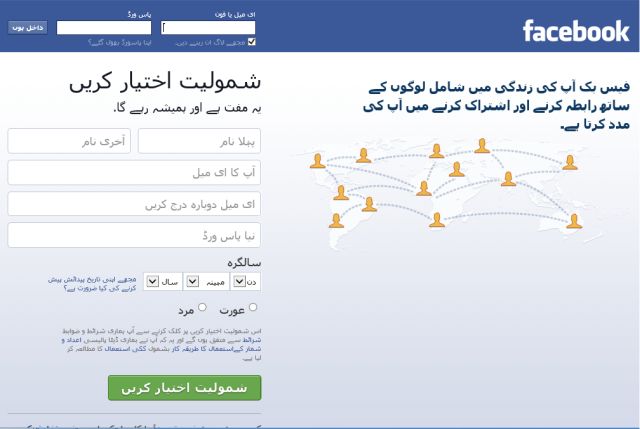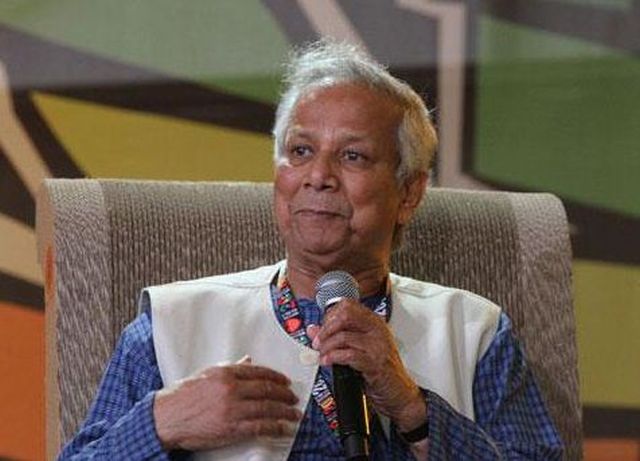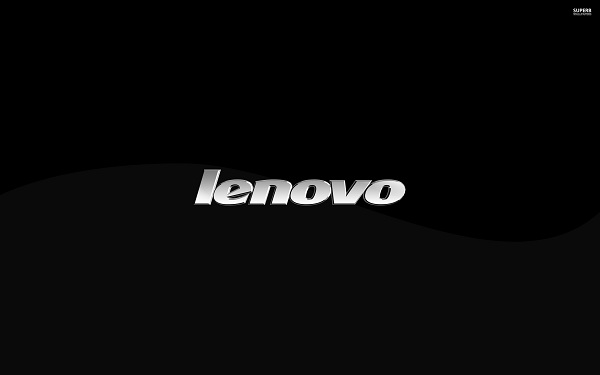
by Editor | May 25, 2021 | Business, Economy, Entrepreneurship, Finance, Markets, News, SMEs, Startup Basics, Startup Financing, Technology
 By Nishant Arora,
By Nishant Arora,
New Delhi : A decade ago, Artificial Intelligence (AI) was unknown to many of us mortals. Lately, however, AI and related buzzwords like Machine Learning (ML) or Big Data Analytics are more visible — staring at us from clumsy signage boards hanging at the entrance of private IT training institutes.
The bare fact is that this new category of intelligence is undoubtedly diversifying human thinking rather than replacing it as some of us fear. The technology, especially the conversational one, has shown tremendous potential — the banking, financial services and insurance (BFSI) sector being the early adopter.
Sensing the immense opportunity ahead, nearly 200 AI start-ups in India are today innovating and creating AI-based solutions for various industries.
Chatbots are slowly becoming the default customer support solution for most services and Mumbai-based Haptik is one such AI-based platform — building applications for consumers, publishers and enterprises.
Having grown 10 times in revenue in just one year, its partners and clients include Coca-Cola, HDFC Life, Samsung, Edelweiss Tokio, Goibibo, Amazon Pay, ClubMahindra, ICICI Bank and Tata Docomo, among others.
According to Kartik Poddar, Business Head, Haptik, they are amazed as well as encouraged by industry’s response and awareness regarding AI technologies in the country.
“The days of concept-selling are over and organisations are deploying AI tech for real use-cases within their businesses, with substantial knowledge regarding its general capabilities and purpose-oriented utility,” Poddar told IANS.
More than 50 per cent of Indian retail companies will be operating on AI by 2020, said PeopleStrong, a Software-as-a-Service (SaaS) HR technology and solutions company.
According to an Accenture analysis, AI has the potential to add $957 billion to India’s economy in 2035.
“We are just scratching the surface of the possibilities and applications of AI in business. There is huge demand and a lot of open source tools are available for start-ups to use and build interesting applications on,” informed Poddar.
For Arun Gupta, Chief Executive Officer at MoMagic Technologies — an AI and Big Data-driven mobile tech firm — India is currently witnessing an all-time high and growing online user base, especially the millennials.
The abundance of data and increased need of its error-free analysis has forced companies to turn towards technologies like AI, resulting in more and more start-ups diving into AI-driven business offerings.
According to Gupta, the digital wave is bringing in a behavioural change and technologies like AI and ML play a key role in analysing that change via the data captured
“In a country like India, with its huge population and vastly diverse demographic spread and customers available on multiple connected devices, AI today presents a big opportunity for businesses across sectors,” Gupta told IANS.
The cost of building AI-powered experiences has been reduced with disruptive technologies being democratised.
Poddar said that companies are mandated to work with innovative start-ups to develop and implement AI-driven solutions to meet specific business challenges.
“We have seen some really interesting AI applications in retail, e-commerce, healthcare, travel and banking, etc. Even the government sector has warmed up to incorporating AI-driven solutions in various public sector initiatives,” the Haptik executive told IANS.
Pune-headquartered digital entertainment firm JetSynthesys is not only developing in-house technology for AI in gaming but also scouting opportunities for new AI start-ups which can address various problems in India.
“Adoption of AI is definitely on the rise so there is space for the right start-up. Also, start-ups in India need to benchmark against global activity in this space which has also heated up significantly in the past two years,” noted Rajan Navani, MD and CEO, JetSynthesys.
According to him, manufacturing, media and entertainment, logistics, urbanisation and smart cities — along with education and healthcare — will benefit significantly from adoption of AI in the country.
A new Tata Communications study says AI is now being viewed as a new category of intelligence that can complement existing categories of emotional, social, spatial and creative intelligence.
“What is transformational about multiplicity is that it can enhance cognitive diversity, combining categories of intelligence in new ways to benefit all workers and businesses,” said study co-author Vinod Kumar, CEO and Managing Director at Tata Communications.
The seeds of AI are being sown in India and start-ups await big financing deals and dollars from venture capitalists which helped neighbouring China harbour one of the biggest clusters of AI start-ups in the world, after the US.
“Big industry players that have the financial strength and business experience to invest in AI research and development typically lead the strategic charge on global competitiveness for their country,” the Accenture analysis noted.
Will they take cognizance of the thriving Indian start-up scene in AI which has the potential to “innovate” for the world?
(Nishant Arora can be contacted at nishant.a@ians.in )
—IANS

by Editor | May 25, 2021 | Markets, Networking, Online Marketing, Social Media, Technology, Urdu
 San Francisco : Artificial Intelligence (AI) researchers at Facebook have set a new record in improving translation from Urdu to English.
San Francisco : Artificial Intelligence (AI) researchers at Facebook have set a new record in improving translation from Urdu to English.
Neural Machine Translation (NMT) is the field concerned with using AI to do translations in any language.
The team from Facebook AI Research (FAIR) has seen a dramatic improvement in its results, the Forbes reported on Saturday.
“To give some idea of the level of advancement, an improvement of 1 BLEU point (a common metric for judging the accuracy of MT) is considered a remarkable achievement in this field; our methods showed an improvement of more than 10 BLEU points,” the team said in a paper that described translation from Urdu to English.
Facebook AI researchers seek to understand and develop systems with human-level intelligence by advancing the longer-term academic problems surrounding AI.
The research covers the full spectrum of topics related to AI, and to deriving knowledge from data: theory, algorithms, applications, software infrastructure and hardware infrastructure.
“Long-term objectives of understanding intelligence and building intelligent machines are bold and ambitious, and we know that making significant progress towards AI can’t be done in isolation,” said researchers from FAIR.
FAIR researchers have tested a new approach that teaches bots how to chit-chat like humans.
Facebook is making deep investments in AI technology and in May announced the next version of its open-source AI framework for developers.
Microsoft is currently leading when it comes to AI and Deep Neural Networks to improve real-time language translation.
Earlier this year, Microsoft brought machine learning to improve language translation for Hindi, Bengali and Tamil.
With Deep Neural Networks-powered language translation, the results are more accurate and the sound more natural.
—IANS

by Editor | May 25, 2021 | Business, Large Enterprise, Markets, Technology
 San Francisco : Microsoft on Friday introduced new Artificial Intelligence (AI)-powered capabilities in Microsoft 365 that will allow people in an organisation create live and on-demand events.
San Francisco : Microsoft on Friday introduced new Artificial Intelligence (AI)-powered capabilities in Microsoft 365 that will allow people in an organisation create live and on-demand events.
Events can now be viewed in real-time or on-demand, with high-definition video and interactive discussion, the company said in a statement.
Launched one year back, the adoption of Microsoft 365 has grown by more than 100 per cent — building on over 135 million commercial monthly Office 365 users, 200 million Windows 10 commercial devices in use, and over 65 million seats of Enterprise Mobility + Security.
“Today, we are introducing new ways Microsoft 365 connects people across their organisation and improves collaboration habits, including new AI-infused capabilities,” said Ron Markezich, Corporate Vice President for Microsoft.
AI-powered services will include speech-to-text transcription, timecoding, transcript search and closed captions to make the event more accessible to all.
Microsoft rolled out the preview of a new Workplace Analytics solution, which uses collaboration insights from the Microsoft Graph, to help teams run efficient meetings, create time for focused work, and respect work/life boundaries.
“Organisations can use aggregate data in Workplace Analytics to identify opportunities for improving collaboration, then share insights and suggest habits to specific teams using MyAnalytics,” Markezich said.
Microsoft Whiteboard is now generally available for Windows 10, coming soon to iOS, and preview on the web, the company announced.
“The new Whiteboard application enables people to ideate, iterate, and work together both in person and remotely, across multiple devices,” Microsoft said.
—IANS

by Editor | May 25, 2021 | Business Summit, Entrepreneurship, Events, Markets, Social Entrepreneur, Technology

Nobel laureate Muhammad Yunus
Bengaluru : Expressing apprehension that disruptive technology would hasten extinction of humankind, Nobel laureate Muhammad Yunus on Thursday warned companies against excessive use of Artificial Intelligence (AI).
“Technology will expedite our extinction on the planet Earth. It may sound funny because technology is supposed to help us and make things easier. But the way AI is invading the world, it will soon replace us with machines to do our job,” Yunus said at the eighth edition of Social Business Day here.
The Bangladeshi won the Nobel Peace Prize in 2006 for his effort to fight poverty. Yunus founded Grameen Bank which gives microcredit to the poor without any collateral.
Organised by the Yunus Centre, a Dhaka, Bangaldesh-based think tank founded by Yunus himself, the event had participants from 42 countries including Afghanistan, Australia, Canada, Italy, France, Taiwan and the US, among others.
As human beings can be replaced with machines, thereby saving money, more machines are being made in the world, leading to widespread use of AI, Yunus pointed.
“With the production cost using machines going down and profit margin going up, more machines are being made.”
In the process of adopting AI, several people will be pushed out of the jobs they hold, Yunus warned.
“We already have nearly 30-40 per cent of the youth remaining unemployed in several prosperous economies. And with the AI, people who are employed won’t have their jobs as smart machines are taking over,” the Nobel laureate said.
Technology, while being a blessing also has the potential to leave a human being at the mercy of others, creating a whole community of “beggars”, Yunus lamented.
“Human beings are capable of creating weapons of mass destruction in a smart way. We are capable of killing ourselves in a very decent way. That is the direction technology can go,” stressed the 78-year-old social entrepreneur.
Countries taking pride in their “fast-growing” economies must beware of concentration of wealth in their nations, Yunus said.
“We take pride that our economies are growing faster than anyone else’s but we forget that the faster we grow, the faster is the rate of wealth concentration and we soon approach the doomsday,” he added.
The two-day event which began on Thursday was held on the Infosys campus at the Electronics City in the southern outskirts of the city.
—IANS

by Editor | May 25, 2021 | Branding, Business, Interviews, Investing, Large Enterprise, Markets, Technology
 By Gokul Bhagabati,
By Gokul Bhagabati,
New Delhi : With Artificial Intelligence (AI) catching the imagination of all and sundry but its implementation being largely restricted to a few global giants, Chinese technology major Lenovo says it has put in place a system that allows even organisations with limited means to leverage the power of AI.
AI is not new in the tech lexicon but what held back the implementation of this technology in the past were the required compute power and skill set.
However, only the big enterprises with deep pockets have been able to take advantage of the new advances.
Lenovo now aims to let small players leverage the AI with its end-to-end solutions.
“Our view is, nobody can buy a box, hire a data scientist and think they are on the path to AI business,” Madhu Matta, Vice President and General Manager, High Performance Computing and Artificial Intelligence, Lenovo Datacenter Group (DCG), told IANS in an interview.
The trick to get started with the AI journey, according to Lenovo, which has committed $1.2 billion investment for AI research and development, is to begin small.
“Start small and as you build your model and it gets more complex, add more infrastructure. That makes sense. Your start-up costs are low and the level of complexity you need is a lot lower,” Matta said.
One of the major innovations, Lenovo said it made towards achieving its objective of making AI implementation simpler, is the development of Lenovo intelligent Computing Orchestration (LiCO) — a software solution that simplifies the management and use of distributed clusters for High Performance Computing (HPC) workloads and AI model development.
Besides simplifying interaction with the underlying compute resources, this platform also enables customers to take advantage of popular Open Source cluster tools while reducing the complexity of using them for AI.
According to Matta, most organisations today need guidance in every step of their AI journey — from data extraction to modelling to getting actual results — and Lenovo is well-equipped to provide that.
“Starting small and growing is not magic. So we built an engine inside LiCO to allow you to scale, again starting small,” Matta added.
“The next layer we provide them is called a workflow template,” he said, adding that this element is necessary to meet the varied needs of different organisations.
“So we were able to develop a pre-trained model and a workflow template,” Matta noted.
“When a data scientist begins a job, he needs to be able to model but prior to that, he has to be able to build a workflow. We give those tools already for certain used cases. We have about 10 such tools,” he explained.
Lenovo has four innovations centres around the world where customers can bring in their data and experiment with them to get an idea of what AI could do.
“We give them a nice cushioned, protected environment with help. We focus on Open Source. We provide building blocks,” he said, asking, “Why should only the big names get the benefits?”
The transformative power of AI — from fraud detection in banks to disease diagnosis in healthcare — is immense.
“The government is looking deeply into multiple AI models to run on top of their eGov applications. In fact, the Indian government could actually be a pioneer in running AI for the masses,” Matta stressed.
(Gokul Bhagabati can be contacted at gokul.b@ians.in)
—IANS





